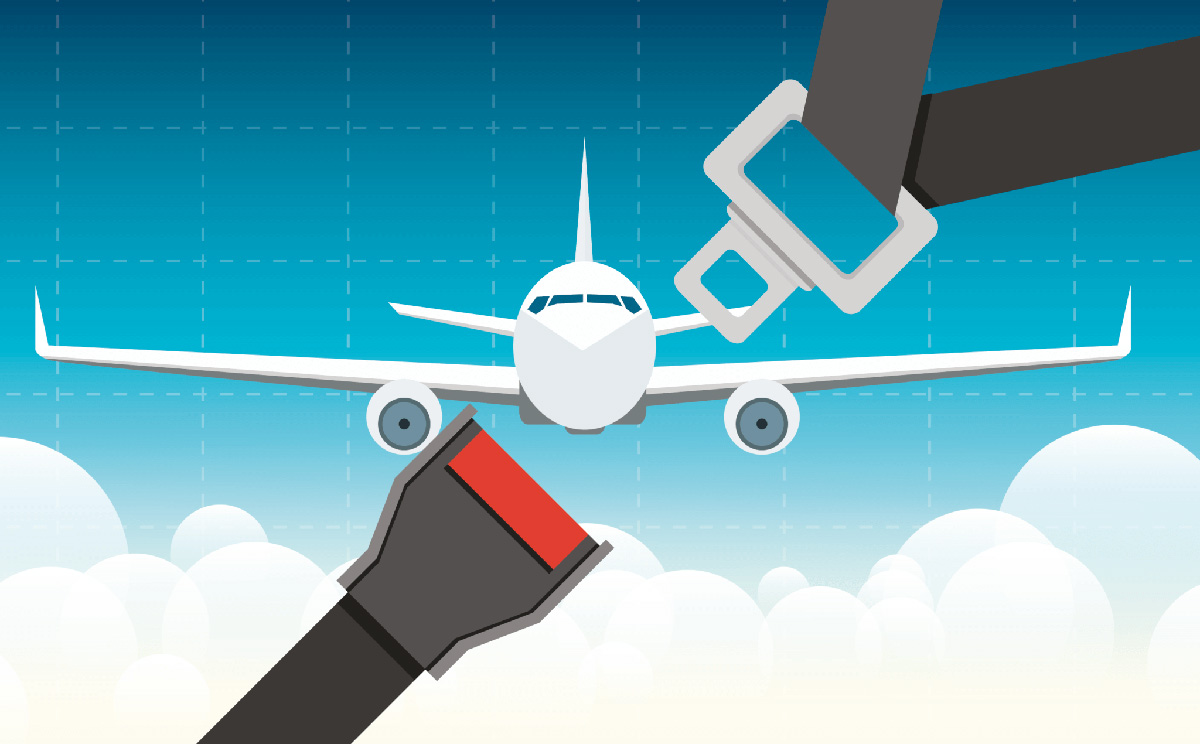Airlines hold their customers’ lives in their hands and culture is critical to keeping them safe.
Safety, compliance and reliability are at the heart of my work and underpin everything that United Airlines does. Whether it’s one aircraft or 1,000, safety is our number one concern, for both our passengers and our employees. Our culture is critical to maintaining an exceptional safety record which helps make the US aviation industry the envy of the world. But there is nothing automatic about a great safety record, and zero room for complacency: it demands that we work hard at our culture every single day. Here’s how we do it.
A symphony
The safety culture at United starts at the top with our chief executive, is reinforced by senior leaders, including me, and by frontline leadership in our teams. Delivering a safe service needs a lot of moving parts to come together. It’s a symphony, and everyone has their part to play.
Knowing what that part is comes from our values, which we call our ‘core4’: to be safe, caring, dependable, and efficient. These form our philosophy, and they are the principles that shape United Airlines’ internal culture. We’ve done a lot of work in recent years to try to empower people to make the right decisions – from customer service agents, to flight attendants, to safety inspectors and mechanics – based on the core4.
In my team, we’ve identified a ‘dirty dozen’ behaviors which can undermine our performance, and risk undermining employee and passenger safety (see the box below).

It’s on all of us to avoid these behaviors and to speak up to challenge others. That’s something that our leaders try to encourage, and we’ve reinforced the right behaviors with training, for example in managing conflict. It’s important that our people feel able to challenge a colleague who isn’t doing the right thing, or comfortable asking questions of our leaders, even ‘difficult’ questions. It’s all part of living up to our values.
Our workflow and processes are key to avoiding the dirty dozen. We have a team of inspectors making decisions about safety issues every day. Some are made using strict guidelines, but some are a little more complicated and involve different views and opinions. Either way, I don’t want my team to memorize our processes – they need the right paperwork and the right tools for the job at hand. There’s no such thing as a minor problem for us; we have to take everything seriously.
Fighting complacency
We always have to be on guard against complacency. People can have all kinds of distractions and outside influences, at home or in their personal life, that affect their work. They are making critical decisions about safety every day, so we need a culture that takes care of those people so they can do a great job: we’re all human. That means I’m OK with someone talking to their supervisor and saying, “I’m just not in it today – my head’s not there.” When that happens, we’ll find that person something else to do: I don’t want someone making a decision that might affect safety on an aircraft if their head’s not in the right place. Compassion and empathy go a long way; it’s an example of our core4 value of caring in practice.
Being transparent and honest are vital too, both internally and externally. Some of that is built into how the industry operates: we regularly share safety information with other airlines and the regulator, the Federal Aviation Administration. We have to be honest about mistakes, starting with the leadership team. I expect us to strive for perfection, but of course nobody is perfect. What’s important is how we learn from our mistakes. Having the right attitude is non-negotiable: if you’re not striving for perfection in safety, then there’s no place for you on my team at United Airlines.
Safety in a Covid-19 world
How has Covid-19 affected our approach to safety? In terms of our underlying culture, it hasn’t changed things at all. Our safety culture was already in place, and will still be there long after the pandemic. Of course, we have taken plenty of steps against Covid-19. We have new procedures like electrostatic spraying to disinfect the cabin, using UV light to ensure we’re cleaning the aircraft properly, and requiring all staff to wear a mask and use hand sanitation wipes. It’s important for leaders to set an example on those things. Plus, there’s lots of information on the United Airlines app, so customers know what to expect at the airport and can work with us on things like social distancing.
Culture for the long term
The mark of a good culture is that it will last beyond any one team member. I spend a lot of time thinking about our succession planning: I had a great predecessor and got to build on what they had done, and I want the person who takes my spot to be better than I was, so one of my goals is to make better leaders.
If I can leave behind a team that has great inspectors, great leaders, and a great culture, I’ll have done my job well.




